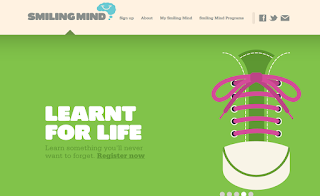 |
| The LeapFrog LeapPad 2 |
Apparently IT parents had to wrestle for their iPads one too many times, because the world is suddenly a fireworks display of tablets and digital devices for children, customized to be safer, cheaper and more educational than the parent version. New learning devices open up opportunities for new learning apps and interfaces, and thus more exciting work for elearning interface designers.
Electronic toy manufacturers like LeapFrog and VTech offer dedicated learning tablets. The
LeapPad and
InnoTab (now each in their second release) look and act just like real tablets, complete with dual-facing cameras and wifi connections. However (and I'm not suggesting this is a problem) they're limited to playing educational apps produced by the vendor (no Angry Birds!). These devices are geared towards younger kids (ages 3-9) and at under $100, provide an option for parents who wish all that screen-time was doing some good.
LeapFrog also makes the
LeapsterGS, a handheld gaming device, like the Nintendo DS (aka. kid-mesmerizer) but again, this one runs educational games that you can download from the LeapFrog store or purchase as cartridges. I can almost hear the millenial moms mumble... "He's been on that thing for 7 days straight, shouldn't we put it away? Oh no, it's educational."
Welcome to kids computing
Once it's no longer cool to have a tablet with rubber corners or a princess theme, kids in the modern world can graduate from learning tablets to Android-based kids tablets. Again, these are designed to be both cheaper and safer than a standard adult tablet and they are pre-loaded with access to learning apps, kid-safe music stores, and stuff pre-teens like.
 |
| The Nabi Kid's tablet. |
These tablets, like the
Nabi and
Meep!, retail at between $120 and $200 and rather than being tied to a particular vendor, have access to the range of Android apps available, Angry Birds included.
Here's hoping the growth in kids computing will support a surge of interest, creativity and research into the design of effective learning interfaces.
Of course more complex devices with short life-spans add to plastic and electronic waste, suck up finite resources and potentially decrease face-to-face interaction and physical play. Nothing comes free.
At the same time, I think of the unique opportunities these devices may afford to children with disabilities. The iPad and similar tablets have already proved to be life-changing assistive technology for kids with autism and other disabilities. Tools like Nabi and Meep, which reshape the iPad experience into one that is more kid-appropriate and affordable, could prove to be transformative.
Are there any kid tablets in your house?
Are they an e-learning miracle or just more e-waste? I would love to hear your thoughts...


















